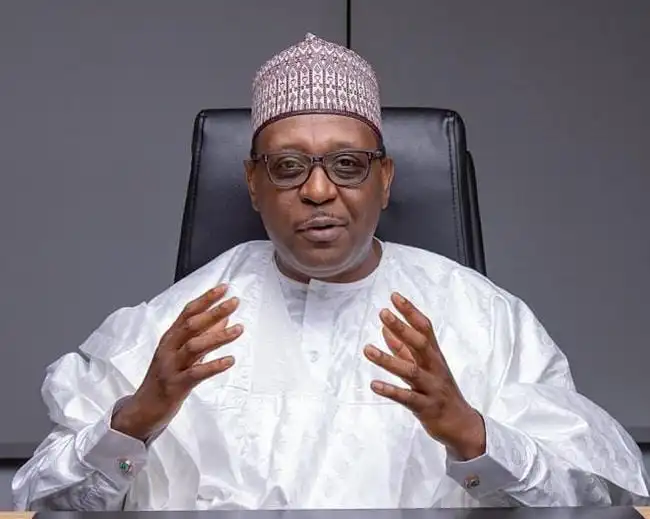The Coordinating Minister of Health and Social Welfare, Prof. Mohammed Pate, on Monday disclosed that an independent assessment has been conducted to assess the quality of care in tertiary hospitals in the country.
Pate, who said this while speaking on Channels Television‘s Sunrise Daily programme, noted that the survey was conducted by the National Tertiary Hospitals Standards Committee.
He said, “We also are beginning to focus on the quality of care in our facilities. As we speak, there’s an independent assessment that has been conducted in 20 of them to look at the quality of care that we offer to our patients.
“You recall, for the first time, we had the National Tertiary Hospitals Standards Committee established, and they have done a very thorough job in understanding what is the standard that they should be held to? We have not had that for decades. So I’ll say that in our journey, we have moved considerably higher than where we were before this president.”
He stated that the committee is derived from the National Health Act of 2014.
“They’ve (The committee) has just submitted their report. So it’s not yet been implemented. In 2014, a law was passed that provided for something to be done in terms of quality of health care. So we waited all these years without such a committee. And now it is happening, this administration established it, and now we’ve got an assessment.
“Now we are going to have scorecards for our teaching hospital to determine the quality of care. Not to judge, but to look at what is going well and where we need to improve so that all our chief executives are focused on looking at the broad areas of quality of care that they offer to our patients, because our focus is to serve Nigerians. That’s the president’s direction so that we reorient our system to the needs of Nigeria.
“So it’s not perfect. I would be the last one to say that all is sorted out. We have started on a direction which we hadn’t been done for many years, and we’re going to stay focused in that direction to improve the quality, to improve the infrastructure, the human resources in our health sector so that Nigerians enjoy quality health care here at home,” he said.
He added that efforts are being made to reform the National Health Insurance Authority, expand health insurance, implement relief measures to make drugs more affordable, and alleviate financial burdens over time for patients.
“We also need to be sure that Nigerians can afford the care, and that’s where the affordability is important. We did a survey, we understood Nigerians are challenged in terms of affording the cost of care, and it’s tipping some Nigerians more into poverty because of that. So the focus is on reforming the National Health Insurance Authority, expanding health insurance, putting the premium for the vulnerable populations, and relief measures that we’re putting in place so that we can afford the cost of drugs.
“It’s challenging, but we have at least intervened from a policy perspective to see how we can begin to relieve some of those constraints over time for Nigerians. So it’s really a vision that is of an integrated healthcare system with the primary healthcare as the base where every Nigerian should be guaranteed the basic healthcare, and completed care cases will go above that to higher levels. And the middle level, which is the responsibility of states, we urge the states to invest in the secondary facilities,” he emphasised.
The minister also highlighted that the government plans to reduce maternal mortality through the Maternal Mortality Reduction Innovation Initiative.
“For maternal mortality, the Comprehensive Emergency of Obstetrics and Newborn Care Centres, for instance, 774 of them, we’re investing, intervening, to upgrade them as part of what we call the MAMI Initiative, so that we can crush maternal mortality. We know that there are certain local governments where mothers don’t have access to the emergency services, and they can lose their lives because they cannot have access to cesarean section or other complications because they can’t afford it.
“So we upgrade the CEmONC, but also raise the resources for those that have been empaneled by the NHIA to reimburse so that those services are free for women and children to reduce maternal mortality. Then women can deliver safely, breastfeed their children, nurture their children to grow to be healthy adults and build into this demographic potential that this country has and into this vision that the president has of a prosperous country that is anchored around its people. So that’s on that pillar that we have laid out,” he noted.


